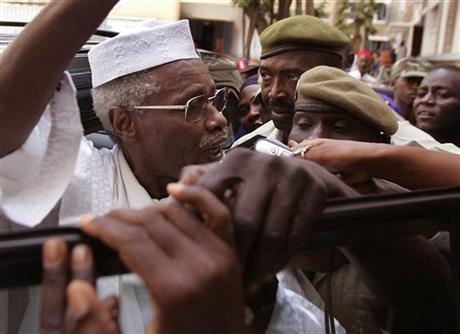
By BABACAR DIONE
A former president of Chad accused of overseeing the deaths of thousands during his time in power will soon stand trial in Senegal on charges including war crimes and torture.
The Extraordinary African Chambers, a special tribunal created to try ex-Chad dictator Hissene Habre, made the announcement Friday evening in response to the findings of a 19-month investigation into alleged crimes committed during his presidency.
Habre ruled Chad from 1982 to 1990, then fled to Senegal after being forced from power by Chad’s current president, Idriss Deby. For more than 20 years, Habre lived a life of luxurious exile in Senegal’s capital, Dakar, until paramilitary police stormed one of his homes in June 2013 and took him into custody in a move victims said was long overdue.
Habre’s trial would be the first in Africa to rely on “universal jurisdiction,” in which a country’s national courts can prosecute the most serious crimes committed abroad, by a foreigner and against foreign victims, Human Rights Watch said in a statement. It is expected to begin in May or June.
“After so many years, Habre’s victims are now on the verge of seeing justice done for what they have endured,” said Jacqueline Moudeina, lead lawyer for the victims and a prominent human rights activist in Chad. “Getting Hissene Habre before a court is an enormous victory for justice.”
Habre’s defense team has derided the case as political, emphasizing the fact that Deby’s government is a major donor to the court.
In May 1992, a 10-member Chadian truth commission formed by Deby reported that Habre’s government was responsible for an estimated 40,000 deaths.
The commission placed particular blame against the Directorate of Documentation and Security, Habre’s political police force, which “distinguished itself by its cruelty and its contempt for human life.”
It employed torture methods that included whippings, beatings, burning and the extraction of fingernails, the panel reported.
Habre received substantial support from the United States and France because he was seen as a “bulwark” against former Libya dictator Moammar Gadhafi, according to Human Rights Watch.



